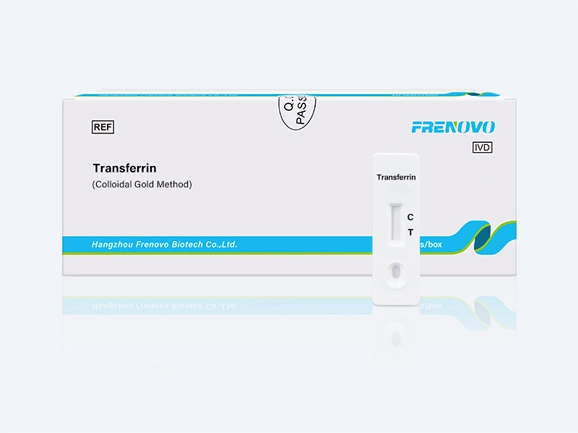

Calprotectin is a calcium-containing protein that makes up 5% of the total protein and 60% of the cytosolic protein of neutrophils. It has bacteriostatic and fungistatic properties and is found in feces at levels six times higher than that in plasma. That fecal biomarker is useful to assess the activity of inflammatory bowel disease (IBD). IBD includes Crohn's Disease (CD) and Ulcerative Colitis (UC) and are associated with elevated neutrophils.
This fecal calprotectin assay is useful in differentiating organic (IBD) from functional gastrointestinal disease (IBS: Intestinal Bowel Syndrome). It is a simple, non-invasive biomarker that is especially useful in children, who may require general anesthesia for colonoscopy. And this fecal calprotectin detection can predict relapse.
Calprotectin Rapid Test Cassette (Faeces) is a rapid chromatographic immunoassay for the qualitative detection of Calprotectin in human faeces specimen which might be useful for the diagnosis of inflammatory gastrointestinal disorders.
Calprotectin is a 24 kDa dimer of calcium binding proteins S100A8 and S100A9. The complex accounts for up to 60% of the soluble protein content of the neutrophil cytosol. Calprotectin becomes available in the intestinal lumen via leukocyte shedding, active secretion, cell disturbance, and cell death. This results in elevated faecal calprotectin levels, which can be detected in the stool.
Elevated faecal calprotectin levels therefore indicate migration of neutrophils into the intestinal mucosa, which occurs during intestinal inflammation.[4] Faecal calprotectin has been used to detect intestinal inflammation and can serve as a marker for inflammatory bowel diseases. Calprotectin is useful as a marker, as it is resistant to enzymatic degradation, and can be easily measured in faeces
MATERIALS Provided: Test cassettes, Package insert, Specimen collection tube with extraction buffer. Not Provided but required: Specimen collection/stool containers, Timer, Droppers.
The Calprotectin Test is a medical diagnostic test used to measure the levels of calprotectin in the stool. Calprotectin is a protein found in the white blood cells, and it is released during inflammation in the body, particularly in the gastrointestinal (GI) tract. The Calprotectin Test is used to detect inflammation in the GI tract, helping to identify conditions such as inflammatory bowel disease (IBD), irritable bowel syndrome (IBS), and other conditions that may be causing GI symptoms. The test is noninvasive and can be performed using a stool sample, making it a convenient solution for early detection and diagnosis of GI conditions. Elevated levels of calprotectin in the stool can indicate that inflammation is present in the GI tract, and further testing and evaluation may be necessary to identify the underlying condition and develop a treatment plan.
Calprotectin test results can either be positive or negative. A positive test result indicating elevated levels of calprotectin in the stool, which may suggest the presence of inflammation in the gastrointestinal tract. A normal or negative test result indicating that the levels of calprotectin in the stool are within the normal range, which may suggest that there is no active inflammation in the gastrointestinal tract.
The normal range of calprotectin in the stool can vary depending on the laboratory and the method used for testing. However, generally, a calprotectin level less than 50 µg/g is considered normal. Levels between 50-120 µg/g are considered borderline, and levels above 120 µg/g are considered elevated.
It's important to note that calprotectin is not a specific diagnostic test for any particular condition. Elevated levels of calprotectin can be seen in many conditions, including inflammatory bowel disease (IBD), irritable bowel syndrome (IBS), and various infections. Further evaluation by a healthcare provider is necessary to determine the underlying cause of an elevated calprotectin level and develop a treatment plan.


